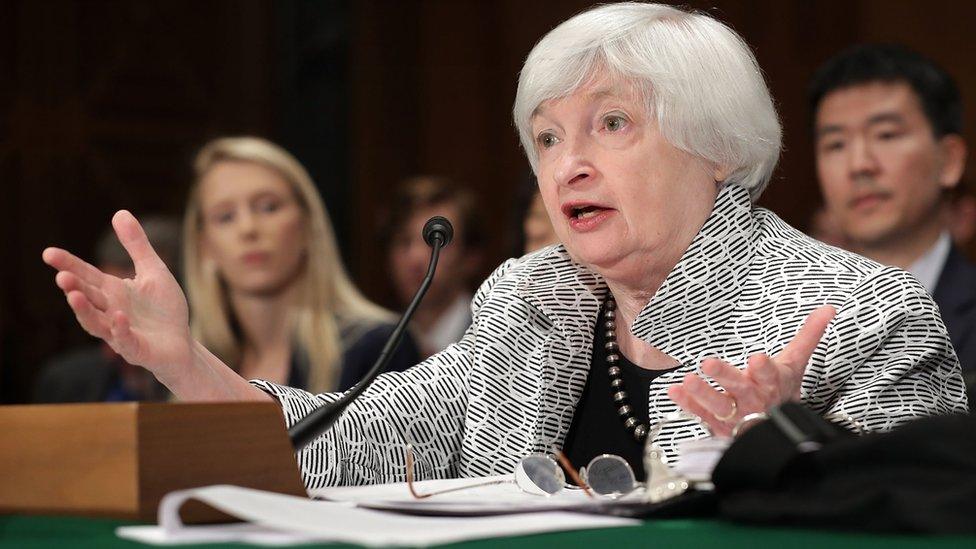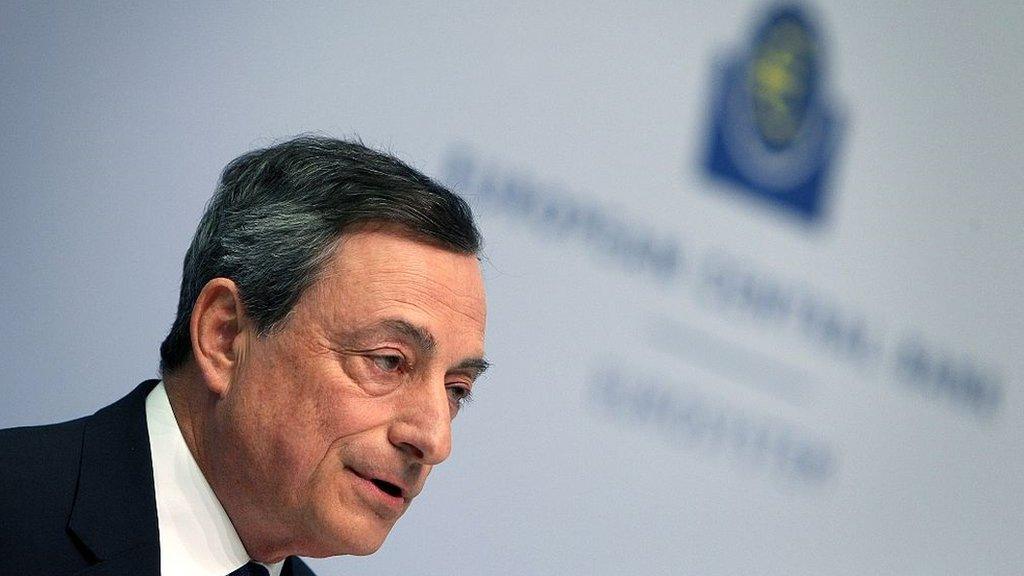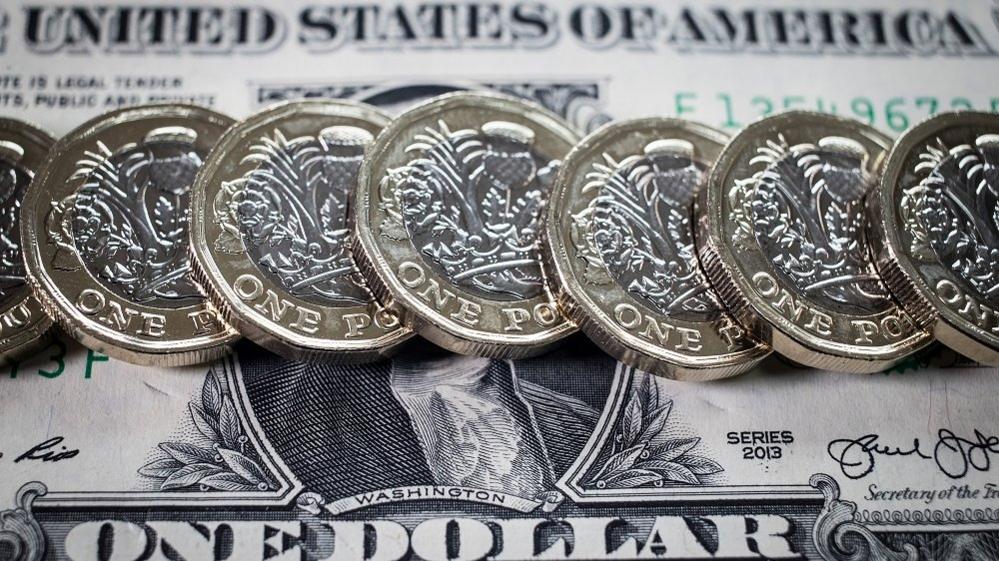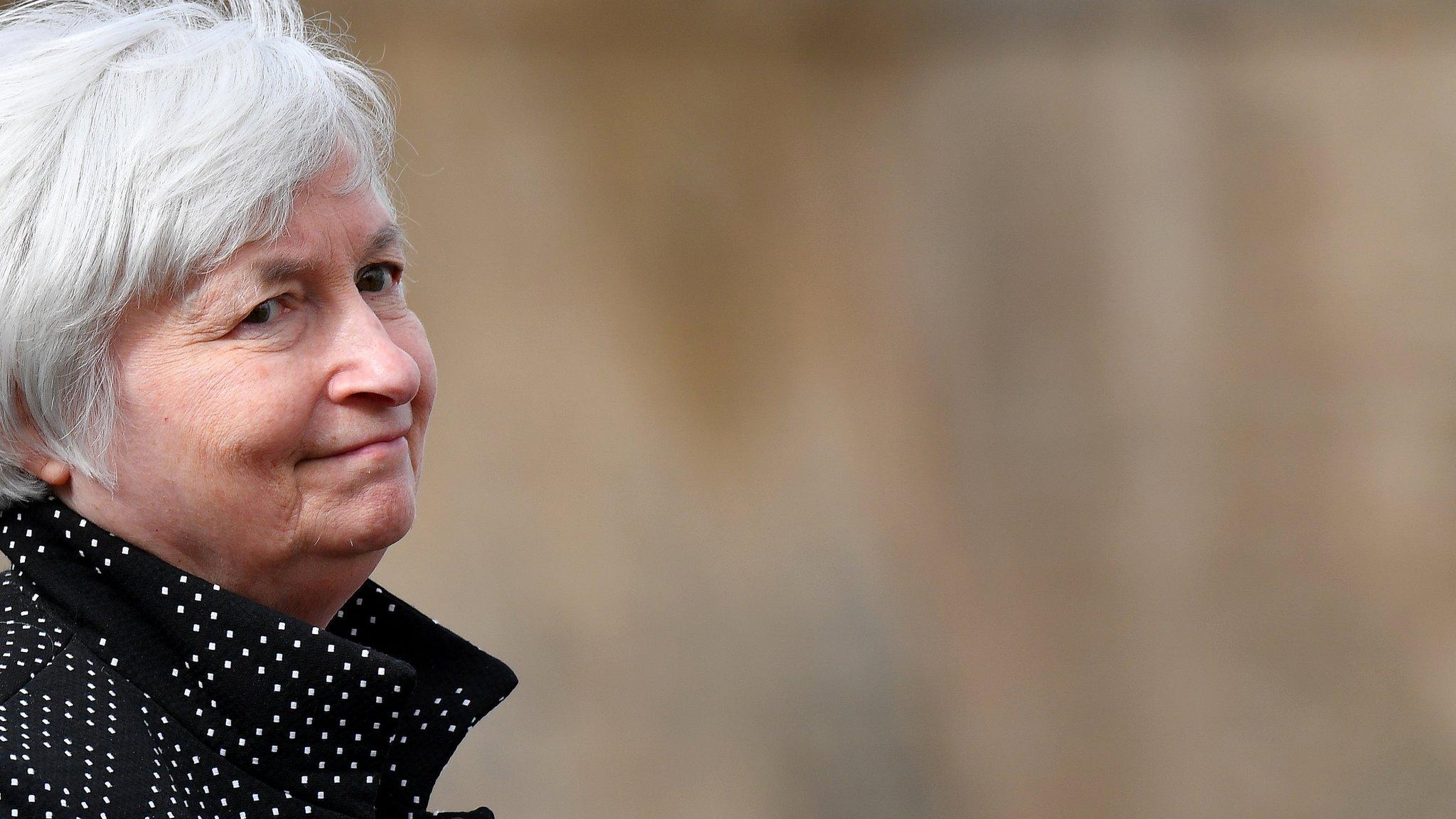Jackson Hole: Markets braced for Yellen speech
- Published

Janet Yellen's term as Federal Reserve chair ends early next year
The world's most powerful central bankers are gathering for their annual meeting at Jackson Hole in Wyoming.
Janet Yellen, whose term as US Federal Reserve chair ends in February, is due to speak on Friday.
European Central Bank president Mario Draghi will also give a speech at the conference.
Stock market investors will scrutinise their speeches for hints on monetary policy and the outlook for interest rates.
It could be Ms Yellen's last appearance at Jackson Hole.
President Donald Trump has said National Economic Council Director Gary Cohn is a candidate to replace Ms Yellen, who also could be reappointed.
Bank of England deputy governor for monetary policy Ben Broadbent will attend the conference, although governor Mark Carney will not be there.
Mr Broadbent is a contender to succeed Mr Carney when he steps down in June 2019.
Bond-buying
The Fed remains the only major central bank to have begun raising rates in recent years.
It is also seeking to cut the huge amounts of government bonds it has built up while pumping cash into the US economy through quantitative easing.
Markets will also be waiting to see if Mr Draghi gives any more indications of when the ECB will start to reduce its own bond-buying programme.
The recent strengthening of the euro has brought more uncertainty into the timing of the move.

The central bankers' meeting is held annually in Jackson Hole, Wyoming
'Step back'
In the global financial crisis central bankers stepped in to shore up flagging markets and business investment by loosening monetary policy.
However, Allianz chief economic advisor Mohamed El-Erian told BBC Radio 4's Today programme it was time for central bankers to "step back".
"Central banks had no choice but to step in with these experimental policies, starting in 2010 for the Federal Reserve, because other policy-makers were not stepping up to their economic responsibilities," he said.
"So the Fed, and then the ECB later on, went from focusing on normalising markets to taking, singlehandedly, responsibility for promoting economic growth."
But Mr El-Erian said while the Fed had bought "time for the economy to heal", it was now time for the political system to "get its act together".
He said the policies, while beneficial, also came at the cost of financial markets getting used to central bank support.
"Yes, the time has come for [central banks] to step back. They have to do it very slowly, and very carefully, and the biggest hope is that someone will step in - and that means other policy-making entities," Mr El-Erian added.
- Published25 August 2017

- Published23 August 2017

- Published24 July 2017

- Published12 July 2017
